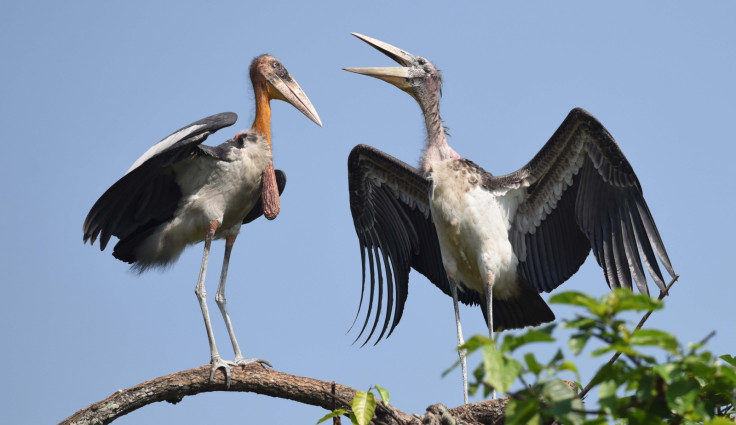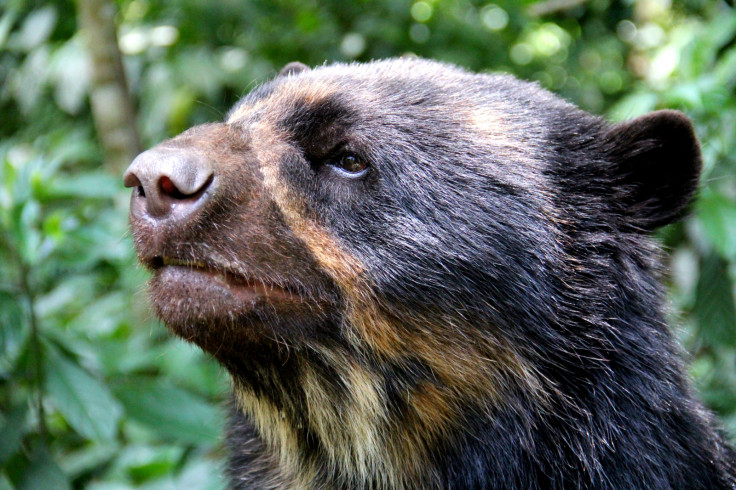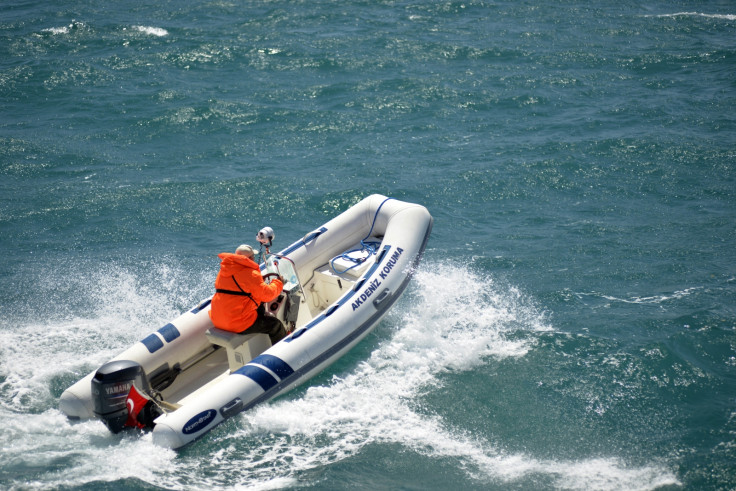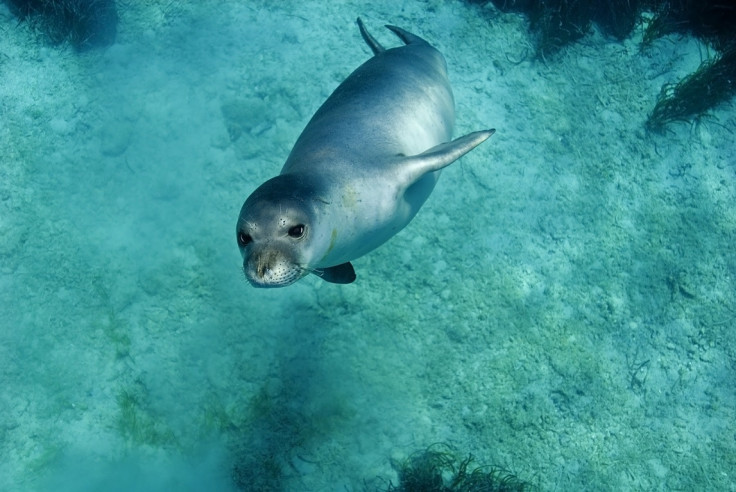Green Oscars: How Indian women are boosting numbers of human-sized carnivorous storks
Women have been defending the stork and encouraging the community to respect and preserve the unusual bird.
Huge meat-eating storks are among the rare and fascinating creatures to benefit from the prize-winning projects at this year's Whitley Awards, known as the 'Green Oscars'.
The competition awards some of the brightest success stories in conservation. This year, giant meat-eating storks and tigers of India, harpy eagles of Venezuela, singing and dancing cockatoos of the Philippines, sungazing lizards of South Africa and spectacled bears of Bolivia were among the species to be given a boost in projects awarded £35,000 prizes from the Whitley Fund for Nature.
Giant flesh-eating storks
Some of this work involves turning around a much-reviled species into one that local people can take pride in and gain a livelihood form protecting. This was no small task when it came to the 5ft-tall greater adjutant, a stork that eats meat – dead or alive – in vast quantities.
But now women in the Assam region of India are working to protect the once common and now endangered species. The great adjutant has historically been hated, and considered ugly, by the local community.
Purnima Devi Barman of the NGO Aaranyak is working to change that. She now wears a white and red scarf of a material highly valued in the Brahmaputra valley region of Assam, embroidered with an image of the stork. In 2008 there were just 28 nests of the greater adjutant in Assam. There are now well over a hundred of the large, dishevelled-looking grey birds.
Barman, who did her PhD on the great adjutant, has been working to make sure that the women in the project – known as the Hargila Army in the area, from the name of the bird in the local language – are invested in protecting the birds.
Their efforts are paying back. About a thousand marginalised people in the Brahmaputra valley are now gaining skills and livelihoods through the project to conserve the unique and underappreciated storks.


Searching for the spectacled bear
Not all of the winners of the Green Oscars are about boosting the numbers of a threatened species. Sometimes a species is so rare that it's incredibly hard to determine if it is still there at all or if it has gone locally extinct.
The spectacled bears is one such species, which used to be common in Bolivia. They live in the dry forests of the Andes and are the only bear in South America. The animal gets its name from the characteristic markings around its eyes. It was listed by the International Union for Conservation of Nature as vulnerable to extinction.
Twenty years ago, men in the villages of Tarija, Bolivia, would see spectacled bears very often, said Ximena Velez-Liendo of the conservation organisation Prometa, and another Whitley Award winner.

"Men would say, two years ago they killed a bear, or last month there was a bear in their field," she said.
But scientific efforts to capture pictures of the bears didn't manage to take any pictures of the bears.
"We started setting up the camera traps following a very scientific strategy. But then for several months we got nothing."
It was a very frustrating process, Velez-Liendo said, as the team didn't know if they were looking in the wrong places, or if there really were no bears to be found. The women of the village would refer to legends of the bears that they knew, but told the scientists that they did not often go to the fields near where the bears were said to be.

After going back to the drawing board with her colleagues, Velez-Liendo decided to give the cameras to the local people who said they had seen the bears. She hired them as field assistants and they put the cameras in what they thought would be the best spot.
Within a few weeks, the team had their first images of the elusive bear. They soon had tens of images of cubs, females and male bears, and their first 10-second video clip of the bears.
With the Whitley Prize, Velez-Liendo intends to take on the field assistants for longer and work with them to document the whereabouts and habits of the spectacled bears in the region.
Replenishing the Mediterranean Sea
The project – given a £50,000 Gold Award at the ceremony – has helped Turkish fishermen in one area quadruple their incomes while helping rare species of fish to skyrocket. How to do it? No-fishing zones.
Far from fishing less, the no-fishing zones are helping small-scale fishermen to taken in many more fish. Allowing the fish a safe space to breed and mature has meant that the recovering species have overflowed their safe havens back into commercial fishing areas.
Local fishermen have seen their income increase by 400% in just five years thanks to the no-fishing zones, said leader of the project Zafer Kizilkaya of the Mediterranean Conservation Society.

"In our area, fish stocks are skyrocketing. Fishing makes up the vast majority of the local community's income," said Kizilkaya.
The key to the success of the no-fishing zones is strict enforcement, he said. About 6.5% of the Mediterranean Sea is under some protection, but this is only on paper. In reality, both small-scale and large industrial fishing boats travel freely throughout much of the sea, with negligible penalties for being caught working where they shouldn't be.
But a group of rangers working with the Turkish Coast Guard have been effectively enforcing a no-fishing zone now since 2010.
"In the beginning, if local people would see illegal fishing activity, they didn't care," Kizilkaya said. "But now they don't tolerate people coming in the no-fishing zones, because they know it is going to hurt them."

If similar enforcement were carried out in protected areas of the world's oceans, it could dramatically increase declining fish stocks. As well as being a big boost for the fishing industries, it is also helping the return of endangered fish species, and the larger mammals and birds that feed on them.
Each of the conservationists to win a Whitley Award will officially be given their prizes at by Princess Ann at a ceremony tonight, using the money to develop their projects and further the prospects of the species they are working to protect.
© Copyright IBTimes 2025. All rights reserved.






















